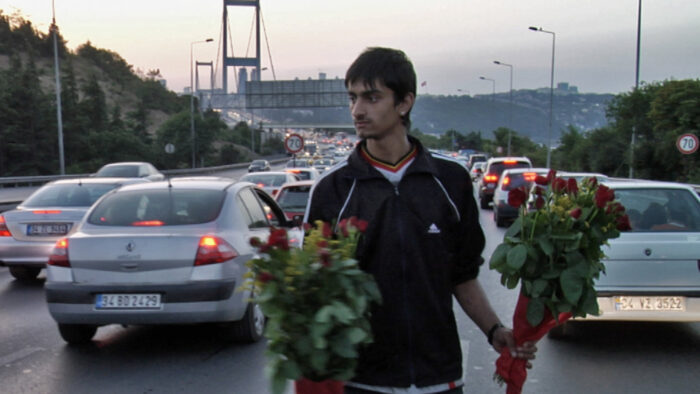Three men work near the Bosphorus bridge. The bridge that links Europe and Asia also connects the men whose lives barely interject. Teenager Fikret sells flowers illegally to motorists, lonely policeman Murat searches the internet for a girlfriend, and Umut tries to balance his low-paid minibus job with the demands of his wife Cemile. The couple try to find a bigger apartment, but Istanbul’s rising prices and Cemile’s demands are out of sync, putting a strain on their marriage.
In addition to the bridge, the men are united by their longing for money and love, which represent a better life and spiritual balance in the middle of congested Istanbul. Yet nothing in the stories feels tacked on, as they are strongly rooted in the lives of the characters, mostly men playing themselves.
Aslı Özge’s award-winning debut film began as a documentary project but became a fiction film when the director was not allowed to film real police officers. Like Jafar Panahi’s Mirror (1997), which switches from fiction to documentary in the middle of the film, Özge’s hybrid of the two genres grows to unpredictable heights. The result is a charming neorealist work with a greater empathy for its characters than either documentary or fiction could separately achieve.
Otto Kylmälä
